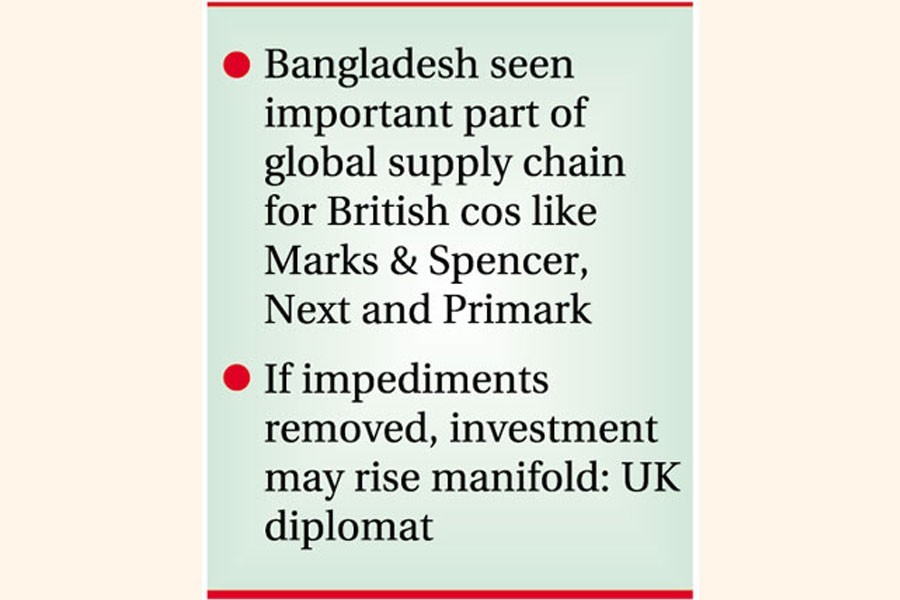Redressing the factors that impede business of the British companies here and fresh investment is set to dominate from the UK side an upcoming trade dialogue between Bangladesh and the United Kingdom.
According to diplomats at the British high commission in Dhaka, lapses in the rule of law, absence of effective dispute-resolution mechanisms, issues related to the revenue board and alleged corruption are the main hurdles facing the British companies doing business in Bangladesh.
Talking to The Financial Express, a senior British diplomat, who preferred not to be named, said in recent years, Bangladesh has become a very important part of the global supply chain of prominent British companies like Marks & Spencer, Next and Primark.
If the impediments could be removed, he sees the prospect of manifold increase in British investment in Bangladesh.
The diplomat pointed out that though British companies like Unilever, BAT and StanChart are the pillars of Bangladesh's corporate world, they're facing various problems in the case of dispute resolution, which erodes their confidence in the system here.
He also feels that many of other British companies are still hesitating to invest here as they're worried about investor protection.
"They're worried about intellectual property. And also I have to say they're worried about the rule of law," he said.
The British officials said that investor-protection issue would be the top priority for them at the dialogue.
"Investment protection is one of the things we're going to be talking about on Sunday when the dialogue will be held with the Ministry of Commerce--because I do think this is probably the most important thing you can think about."
Investor protection and investor confidence are probably the most important thing, the diplomat added.
British trade commissioner based in India will lead the UK side during the dialogue, officials said.
In recent years, British development programme has been shifted from direct delivery into basically policy advice, advocacy, and those sorts of things.
The United Kingdom had very large bilateral development programmes and they were directly funding big programmes through BRAC, mainly on health and education.
But now the British government has shifted the development policy in Bangladesh quite profoundly.
On the issue of trade ties with Bangladesh, one of the British officials said, "If you look at the figures, the trade has grown significantly over that period. So, increasingly, it's a sort of mature, trade-focused economic relationship."


